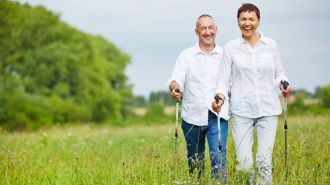- Our studies
- Our research
- Publications and resources
- Data access and training
- About
- News
- Events
- Get in touch
- Join our mailing list
Welcome to our news and blogs section. Here you’ll find the latest developments and insights from across our longitudinal studies.
Growing Up in Digital Europe (GUIDE) is the UK pilot of a major European initiative to create internationally harmonised data for research on child development and wellbeing.

Among women with young children, those in low-income households are more likely to exceed recommended levels on alcohol, according to a new study.

Young adults from working class homes are more likely to drink heavily if they smoked during their teenage years, whereas their middle class peers start drinking excessively if they go on to higher education.

This research project investigates the influence of work and family status on exercise and sedentary behaviour in childhood and adult life.

This research project uses evidence from all four of our cohort studies to investigate the short- and long-term health impacts of alcohol.

Incorporating seven projects, this programme explored two key themes which are both central to government policy: healthy lifestyles and the transmission of advantage and disadvantage from one generation to the next.

The fifth MCS survey took place during 2012 when participants were aged 11. Our initial findings from the age 11 survey cover a range of themes, from family structure to child cognitive development.
The challenges facing first-time parents are examined in a new briefing paper from the National Society for the Prevention of Cruelty to Children.
There is a clear relationship between cognitive ability in childhood and the odds of taking long-term sick leave as an adult, a new study suggests.
A ‘tough love’ parenting style is the most effective approach to preventing teenagers from binge drinking, a new study claims
Research using Millennium Cohort Study data has shown that breastfeeding leads not only to healthier babies, but also brighter children.
Research based on the Millennium Cohort Study looks at how much a child’s physical activity can be predicted by parental income and education, health behaviours and parents playing with them.
Scottish seven-year-olds are the most physically active in the UK, new research suggests.
Ryan Bradshaw
Senior Communications Officer
Phone: 020 7612 6516
Email: r.bradshaw@ucl.ac.uk